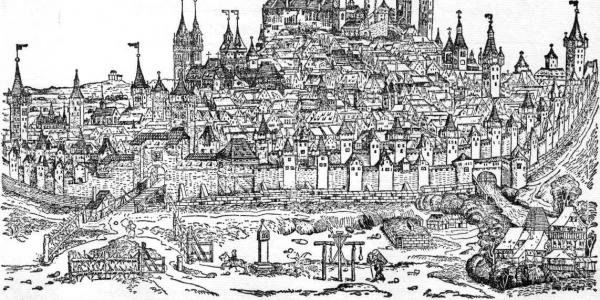Creating German Identity from Roman Antiquities: Hartmann Schedel’s Opus de Antiquitatibus Inclite Germanie (1505)
The Bavarian State Library in Munich, Germany holds a little-known autograph manuscript of great importance: the Liber Antiquitatum, a 4-part collection of inscriptions and antiquities from the classical era to the Renaissance. The Liber was compiled from 1502–1505 by the famous Nuremberg physician and humanist, Hartmann Schedel (d. 1514), who dedicated the fourth part of the Liber, the Opus de Antiquitatibus Inclite Germanie, to the inscriptions and antiquities of the German lands. The Opus was part of a larger scholarly and patriotic program to uncover and preserve as much information about the German past and present as possible. The significance of the Opus lies not only in is devotion to studying material remains, in particular those from Roman Germania, but also in its preservation of a way of viewing these materials as distinctly German. The Opus thereby records one Renaissance scholar’s attempts to read the material remains of the Roman past as a means to access German history, and therefore illustrates a significant shift in the development of a “nationalized” conception of antiquity.
This event is co-sponsored by the Department of History and the Department of Comparative Literature and Thought.
A reception will follow the lecture.
For information on viewing the lecture remotely, contact classics@wustl.edu.

